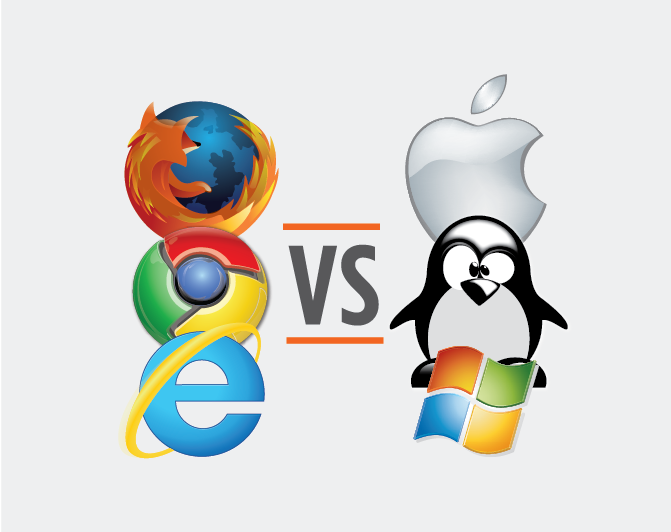
No matter what your company does, you do business in an app-based world. All day long, most of us constantly go back and forth between multiple apps, from simple report typing to managing meetings. The average worker probably barely knows or notices which programs they’re using are network-based or web-based. So what’s the difference?
Network-based apps must be installed on the computer or network, usually done by the company’s IT support and services team, whether in-house or offsite, such as a Managed IT services provider. These apps can be purchased in a box or downloaded online, but they are earthbound, connected to the local network. Except for a very small, 2 or 3 person office who might buy the app and install it themselves, it is best, especially if the app is installed on the network for many users, to have IT support do the job.
No matter what technological advances are made, it is still a fact that not all apps play well together on a network. Problems can arise between apps and other apps, the operating system or even with peripheral devices such as printers and scanners, especially with older apps.
One perfect example is WordPerfect (WP). Still in use by many Law Offices because of the legal formatting features, WP has steadily seen its market share drop since Microsoft incorporated these features into Word, but as a Managed Services Provider specializing in the legal industry, we can assure you that trying to convince a senior partner who has been practicing law for 30, 40 or 50 years to dump WP is a daunting task. They know the program and as far as they’re concerned, it “Ain’t broke, so don’t fix it.” The customer is always right, so as the IT service, we routinely fix the little problems and logjams WP causes.
Fortunately most general apps for business are updated regularly so they don’t cause glitches in the network, but they still happen. It’s no big deal for IT Help Desk services to reconnect a user to a printer or reopen their email. For all types of IT consulting services, it’s just the price of doing business, but just ask any member of the IT Support Los Angeles Community which one makes their life easier, and it will be online apps.
Web-based apps require only a reliable internet connection to access the program. The user need do nothing more than pulling up the app website and logging on. The accounting program QuickBooks is one app that has seen incredible success moving people from hard-wired programs to the online application.
Sounds like the discussion is over and web-based wins, right? To a certain extent, perhaps, but there are other considerations.
Which is safer, a website or an app?
First, a plain truth: Anything can be hacked – your local physical network, or the site where you operate the app. Cybersecurity is basically an endless game of ‘Whack-a-Mole.’ As fast as your IT support or cyber security services can plug a hole or block a possible intrusion, the cyber crooks are figuring out other ways to get in.
While apps online store and backup your data in the provider’s servers and can be accessed from anywhere with an internet connection. While your data is password protected, it is still important to look at the web address – it should begin ‘https’ rather than just ‘http’ – the ‘S’ at the end signifies that your requests and response are encrypted using TLS (Transport Layer Security).
Even with all the security proclamations, using web-based apps requires trust. As a user, you have no control over the security, and too many sites - huge ones like eBay, Adobe, Equifax and even NASA have been hacked – and these are companies you would expect to have top-notch security. What is the security status of your online app?
Compare that to a hard-wired office network, hands down, the desktop network is consistently more secure – even more so if the legacy local network has been moved to virtual status in the cloud. Still, a Managed IT services provider is needed to maintain and continuously monitor the network security. Lesser purveyors of ‘IT services’ usually do not do a thorough job. Once your business has grown, it’s time replace your teenage nephew with an experienced and qualified Managed Services Provider – you have too much at stake.
Are web apps slower than desktop apps?
First, it depends on your internet speed, but all things being equal, generally the desktop apps are considered faster - in most cases. Requesting large amounts of data from an HTML can slow a computer, whereas pulling the same data from your computer generally will not, but that also depends on hardware factors such as the amount of RAM (Random Access Memory) installed in your desktop.
Ultimately, there are too many variables that can be at play to give a more solid comparison, but if your IT support and services team keeps the hardware and memory your network maxed out and on up-to-date, the desktop app should be faster.
Which is better: Web app or desktop app?
There are places where each edge the other version out:
Accessibility/Mobility: There are two areas where the comparison comes out as a drawl If the internet is down, so are all your web apps. For desktop apps the power in your office would have to out to lose your apps, but you could still access web apps from mobile devices. With the vastly increased number of remote workers, the older notion that web apps had the edge because you can access them from any device anywhere is more or less a moot point.
Troubleshooting: Web apps have the edge here, because the site would have to be down to keep you from accessing them. With desktop apps, even the best IT services team cannot 100% prevent Network events that can interrupt access locally.
Cost: Web apps are typically subscription based, but the monthly fee is not usually exorbitant, so compared with the one-time purchase price of a desktop app, it’s more or less a wash – newer versions of the desktop app will have to be purchased in the future, so it’s a close race.
Upkeep: Web apps win this hands down: you log in and use the app – period. Desktop apps are tied to the physical attributes of your network: the amount of storage space, hardware obsolescence and app re-installation, ongoing security needs – all these and more will keep your Managed IT services or IT consulting services busy.
Will Web apps replace desktop apps?
Slowly but surely, all the indicators point to: Yes. It won’t be tomorrow or even next year, but the techno-writing is on the wall. Gitconnected offers a very in-depth analysis of the future of applications in the online article ‘Goodbye, Desktop Apps’.
The change will be barely more than a blip to most end users. It will be a matter of logging in rather than clicking a desktop icon, but this change is inevitable, and it will be just fine. Ask any senior citizen if they miss their old rotary-dial land-line phones. It’s all good.


